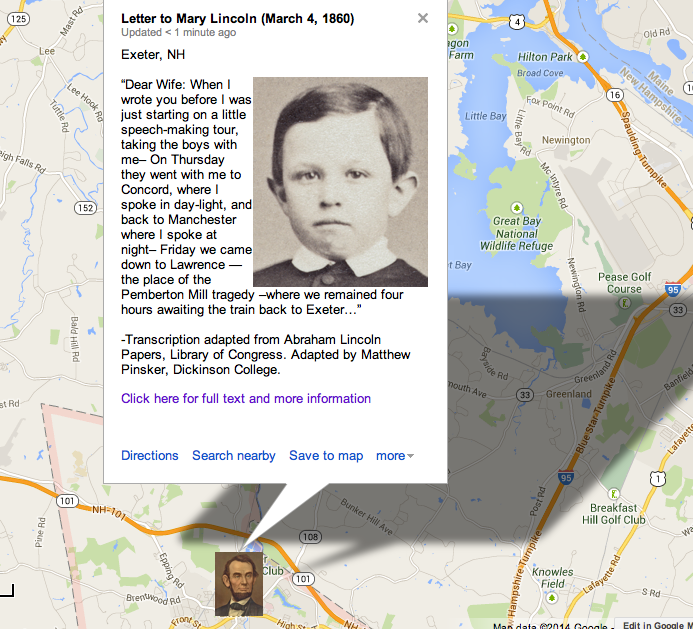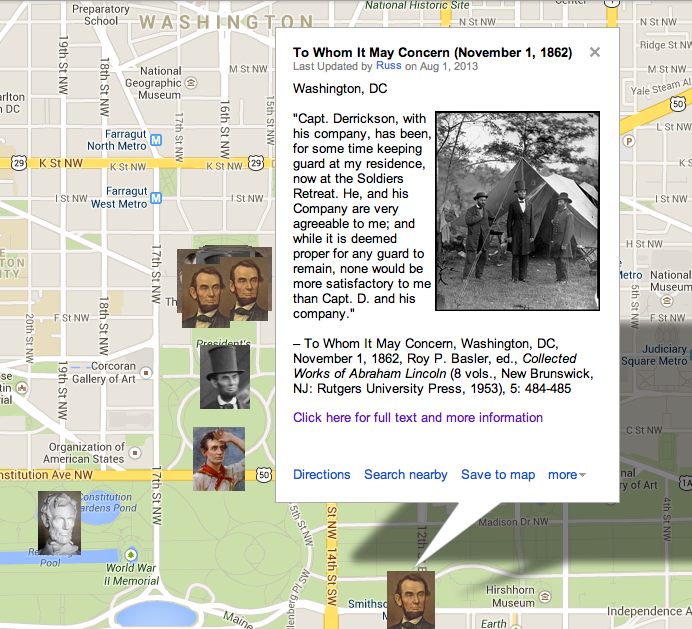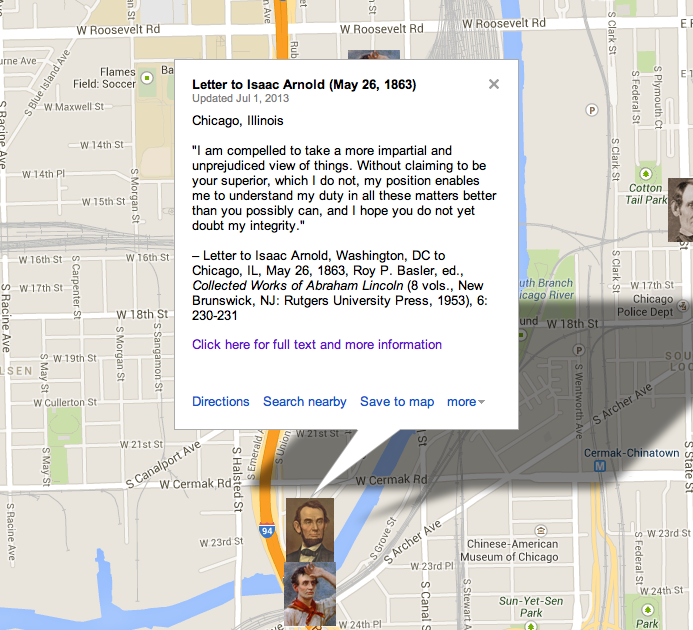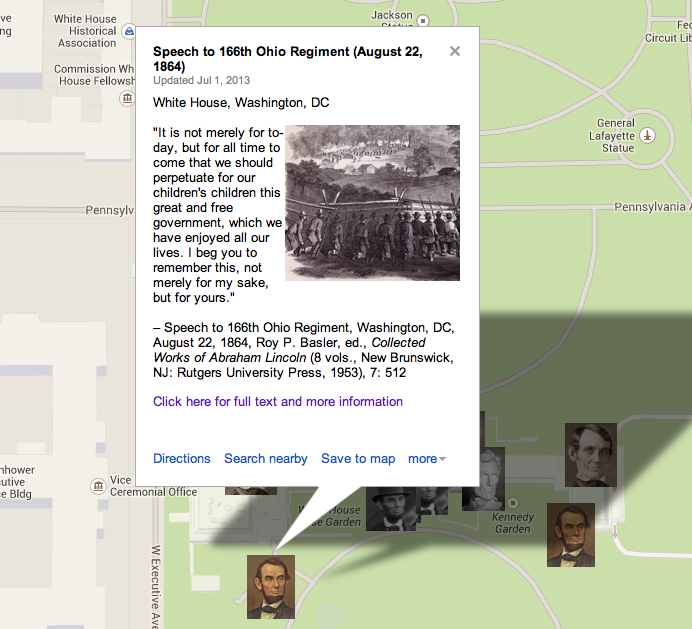Ranking
#149 on the list of 150 Most Teachable Lincoln Documents
Annotated Transcript
Context. President Lincoln wrote this careful note to French writer Agenor-Etienne de Gasparin after receiving multiple letters from him as well as a copy of his translated work on the American Civil War. Gasparin, a former government official who had been living in exile in Switzerland for a number of years, had written two pro-Union books in 1861 and 1862 and had become something of a regular correspondent with members of the Lincoln Administration. Secretary of State Seward informed Lincoln a few days earlier that he considered Count Gasparin to be “very, very sensible,” which may help explain why Lincoln took so much care in crafting his response. (By Matthew Pinsker)
“You are quite right, as to the importance to us, for its bearing upon Europe, that we should achieve military successes; and the same is true for us at home as well as abroad. Yet it seems unreasonable that a series of successes, extending through half-a-year and clearing more than a hundred thousand square miles of country, should help us so little, while a single half-defeat should hurt us so much. But let us be patient.”
On This Date
HD Daily Report, August 4, 1862
The Lincoln Log, August 4, 1862
Custom Map

View in Larger Map
Other Primary Sources
William Seward to Abraham Lincoln, August 1, 1862
How Historians Interpret
“To a sympathetic Frenchman, Lincoln explained that the draft was necessary because in America ‘every soldier is a man of character and must be treated with more consideration than is customary in Europe.’ Therefore, ‘our great army for slighter causes than could have prevailed there has dwindled rapidly, bringing the necessity for a new call, earlier than was anticipated.’ While predicting that the government ‘shall easily obtain the new levy,’ he warned that a draft might be resorted to. Strangely enough, he said, ‘the Government is now pressed to this course by a popular demand,’ for thousands of men ‘who wish not to personally enter the service are nevertheless anxious to pay and send substitutes, provided they can have assurance that unwilling persons similarly situated will be compelled to do like wise.’ Moreover, ‘volunteers mostly choose to enter newly forming regiments, while drafted men can be sent to fill up the old ones, wherein, man for man, they are quite doubly as valuable.'”
–Michael Burlingame, Abraham Lincoln: A Life (2 volumes, originally published by Johns Hopkins University Press, 2008) Unedited Manuscript by Chapter, Lincoln Studies Center, Volume 2, Chapter 26 (PDF), 2914-2915.
“He was a keen student, and with the early aid of Major General George B. McClellan and other officers, Lincoln became fully at home with his generals’ military conceptions. To the question as to why ‘the North with her great armies’ so often faced the South in battle ‘with inferiority of numbers,’ the president perceptively explained that ‘the enemy hold the interior, and we the exterior lines.’ Along with understanding lines of operations he came fully to grasp the logistics of field armies and the significance of entrenchments and learned to attach great importance to the turning movement or to any chance ‘to get in the enemy’s rear,’ or to ‘intercept the enemy’s retreat.'”
–Herman Hattaway, “Lincoln’s Presidential Example in Dealing with the Military,” Journal of the Abraham Lincoln Association 7, no. 1 (1985), 18-29.
“Lincoln wrestled now with a problem inherent in the Union’s inevitable dependency on volunteers. Asked about the challenge by a French observer, he replied ‘With us every soldier is a man of character and must be treated with more consideration than is customary in Europe.’ He ignored that at his peril. The independent American spirit explained in part why the army dwindled as it did, for men who would volunteer wanted, naturally, to go to the front in new regiments composed of their friends an neighbors, rather than be sent into existing regiments to plug holes That was why, the same day Lincoln answered the Frenchman, he also authorized Stanton to go ahead with a draft of up to three hundred thousand men to complete any unfilled state quotas out of the July call.”
William C. Davis, Lincoln’s Men: How President Lincoln Became Father to an Army and a Nation (New York: The Free Press, 1999).
NOTE TO READERS
This page is under construction and will be developed further by students in the new “Understanding Lincoln” online course sponsored by the House Divided Project at Dickinson College and the Gilder Lehrman Institute of American History. To find out more about the course and to see some of our videotaped class sessions, including virtual field trips to Ford’s Theatre and Gettysburg, please visit our Livestream page at http://new.livestream.com/gilderlehrman/lincoln
Searchable Text
Executive Mansion Washington August 4. 1862
Dear Sir:
Your very acceptable letter dated Orbe Canton de Vaud, Switzerland 18th of July 1862 is received. The moral effect was the worst of the affair before Richmond; and that has run its course downward; we are now at a stand, and shall soon be rising again, as we hope. I believe it is true that in men and material, the enemy suffered more than we, in that series of conflicts; while it is certain he is less able to bear it.
With us every soldier is a man of character and must be treated with more consideration than is customary in Europe. Hence our great army for slighter causes than could have prevailed there has dwindled rapidly, bringing the necessity for a new call, earlier than was anticipated. We shall easily obtain the new levy, however. Be not alarmed if you shall learn that we shall have resorted to a draft for part of this. It seems strange, even to me, but it is true, that the Government is now pressed to this course by a popular demand. Thousands who wish not to personally enter the service are nevertheless anxious to pay and send substitutes, provided they can have assurance that unwilling persons similarly situated will be compelled to do like wise. Besides this, volunteers mostly choose to enter newly forming regiments, while drafted men can be sent to fill up the old ones, wherein, man for man, they are quite doubly as valuable.
You ask “why is it that the North with her great armies, so often is found, with inferiority of numbers, face to face with the armies of the South?” While I painfully know the fact, a military man, which I am not, would better answer the question. The fact I know, has not been overlooked; and I suppose the cause of its continuance lies mainly in the other facts that the enemy holds the interior, and we the exterior lines; and that we operate where the people convey information to the enemy, while he operates where they convey none to us.
I have received the volume and letter which you did me the honor of addressing to me, and for which please accept my sincere thanks. You are much admired in America for the ability of your writings, and much loved for your generosity to us, and your devotion to liberal principles generally.
You are quite right, as to the importance to us, for its bearing upon Europe, that we should achieve military successes; and the same is true for us at home as well as abroad. Yet it seems unreasonable that a series of successes, extending through half-a-year and clearing more than a hundred thousand square miles of country, should help us so little, while a single half-defeat should hurt us so much. But let us be patient.
I am very happy to know that my course has not conflicted with your judgement, of propriety and policy.
I can only say that I have acted upon my best convictions without selfishness or malice, and that by the help of God, I shall continue to do so.
Please be assured of my highest respect and esteem.





